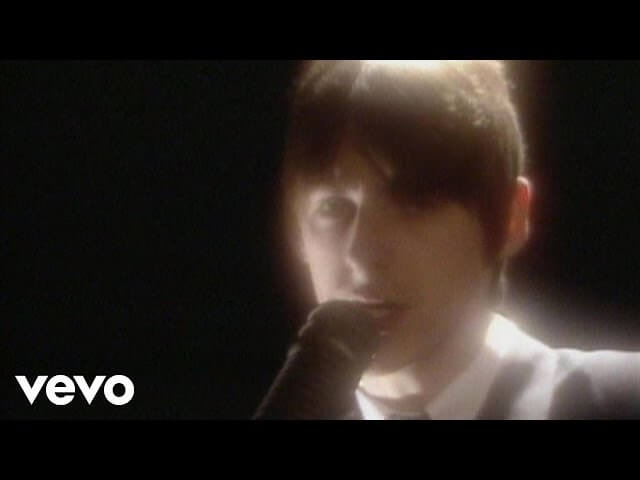The Gift was The Jam’s cranky, inspired, unexpected farewell

Permanent Records is an ongoing closer look at the records that matter most.
On December 11, 1982, The Jam played its farewell concert, at Brighton’s Conference Centre, ending with an extended version of “The Gift,” the final track—and title track—from the band’s last studio album. Though frontman Paul Weller had tried to keep his decision to dissolve the group a secret until late in its valedictory tour, the news had leaked out long before December, sending The Jam’s longtime fans scrambling for tickets. Three months later, in March 1983, Weller’s new act The Style Council would release its first single, “Speak Like A Child,” a soulful, danceable number that continued in the direction The Jam had been heading with songs like “Absolute Beginners,” “Beat Surrender,” and The Gift’s “Precious” and “Trans-Global Express.” As the song climbed the charts, all the Jam-ophiles who packed into those last shows were asking the question that even Weller’s former bandmates Rick Buckler and Bruce Foxton were pondering: Why couldn’t this have been a Jam record?
Author Paolo Hewitt wrote the authorized biography The Jam: A Beat Concerto in 1983, then revised it 1996. In the later edition, even after 13 years of Style Council and Paul Weller solo hits—including the 1995 album Stanley Road, which was a U.K. chart-topper—Hewitt still described the decision to end The Jam as “a source of great wonderment.” Hewitt actually does a fine job of explaining what drove Weller to toss aside a name that had enormous value in Great Britain and a growing cachet abroad. In part, it had to do with the difficulty that The Jam’s drummer Buckler and bassist Foxton experienced in adapting to The Gift’s more complex music, so that Weller had to compromise more than he’d wanted, on their behalf.
Also, the fanatical devotion that The Jam inspired had a dark side that Weller disliked. When the trio exploded out of the 1977 punk scene—with a sound and style that hearkened back to early 1960s British rock and “mod” acts like The Who, The Small Faces, and The Kinks—Weller’s poppy melodies and big hooks made the band commercially successful, while Buckler and Foxton’s swift, aggressive beat made them popular with “the lads.” Those same young, macho fans would sometimes provoke violence at Jam shows, even while sporting fancy clothes and shaggy haircuts. Each one of the old guard seemed to have an opinion about how The Jam should sound, and many seemed unwilling to trust Weller’s developing fascinations with worldbeat and neo-disco.
That may explain why The Gift drew such a mixed reaction when it was released in March 1982. At the time, it had been well over a year since the previous Jam album, 1980’s Sound Affects. In the interim, the band had released two hit singles—the raging “Funeral Pyre” and the horn-stoked “Absolute Beginners”—that had been criticized for being overproduced and bombastic, absent the crispness that had been The Jam’s hallmark in the late ’70s. The Gift drew some raves in the British press, but also more than a few half-hearted notices. In New Musical Express, Graham Lock complained that Weller “seems tired of the old-style Jam music… but knows of no better alternative, so he ends up dabbling,” adding, “The Jam have tried too hard to do too much without really having any stronger foundations than their own desire to ‘keep moving.’”
Longtime fan Hewitt gave a mixed-to-positive breakdown of The Gift’s strengths and weaknesses in the original A Beat Concerto, though in the revised edition he’d admit that in 1983, with The Jam’s breakup still fresh, he undervalued a lot of the band’s subtler songs. American critic Robert Christgau, never a Jam true-believer, wrote of a 1981 U.S.-only EP, “There are two theories about these guys—one that they’re getting better, the other that they’re getting worse. As you might fear, this interim product (‘5 British Hit Singles,’ boasts the sticker, so imagine how excited they are in Britain) proves both—songwriting up, punk excitement gone forever.” His Gift review, meanwhile, is mostly admiring, until this stinging final line: “If [Weller]’s written half a dozen good melodies since he stopped settling for Who hand-me-downs, three of them have passed me by.”
At the cash register though—and on the radio—The Gift became one of The Jam’s most popular albums. Even now, The Jam song most likely to pop up on movie soundtracks and compilations of “’80s music” is The Gift’s “Town Called Malice,” a Motown-inspired pop wonder that showcases the best of what the band could do. A taut, springy number with a memorable tune—but no real chorus aside from the repetition of the title at the end of nearly every verse—“Town Called Malice” is an upbeat song about a downbeat subject. Weller tours a working-class neighborhood that’s being crushed by the Thatcher economy, rallying the listener to his cause with his insistence that’s something’s gone awry in a country that can’t sustain “a whole street’s belief in Sunday’s roast beef.”
The Gift features a few songs every bit as good as “Town Called Malice.” Though it never became a single, the offhanded R&B shuffle “Ghosts” remains a fan-favorite, with its casual vocal and snappy, tinny horns. Weller says he wrote the song in the studio, while improvising with Buckler and Loxton. While at the time he had no plans to dissolve The Jam, anyone looking for cues to Weller’s mindset could read a lot into this “Ghosts” lyric: “There’s more inside you that you haven’t shown.”
 Keep scrolling for more great stories.
Keep scrolling for more great stories.
